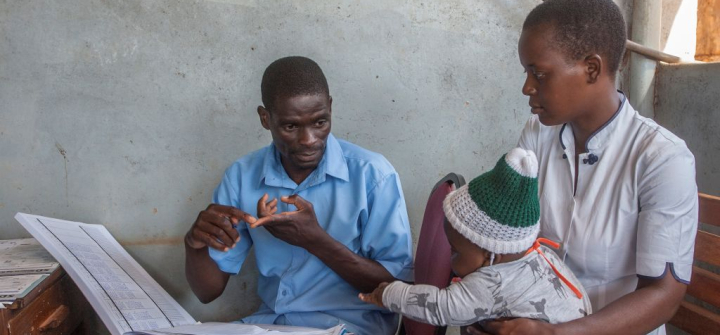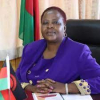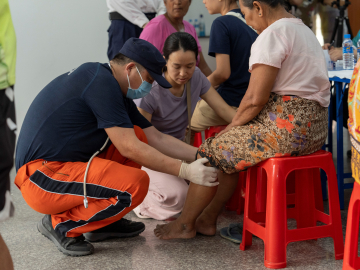The Responsive Primary Health Care Path to UHC
2023 has been a year of overlapping challenges for Malawi. We’ve weathered the deadliest cholera outbreak in our country’s history, Tropical Storm Ana, and Cyclone Freddy—all in the wake of the economic and health devastation of the COVID-19 pandemic.
These compounding crises have at times incapacitated our health systems and tested the public’s trust in science. They have overstretched our workforce and destroyed critical infrastructure, flooding health centers and roads.
As Malawi builds back from these crises, one key factor has become clear: We need to invest in a strong primary health care system that is responsive to the needs and preferences of the communities it serves—and the broader shocks it will face.
Malawi is not the only country grappling with these new, complex health emergencies. As many as 615 million people in Africa, and about half the world’s population, still don’t have access to essential quality health services.
This week, as world leaders gather in New York for the UN General Assembly, we face a stark truth. Without urgent action, we’ll likely miss our target to realize Universal Health Coverage (UHC) by 2030—a vision of a world where everyone, everywhere can access safe, high-quality health care without financial hardship.
The WHO has long championed primary health care as a pathway to UHC, but existing health systems are rarely designed around primary care. If done right, people should be able to access up to 90% of the essential health services they may need throughout their lifetime through the primary care system, from newborn vaccinations to care for heart disease.
In Malawi, we are piloting and implementing specific programs designed to make our health system more responsive to community—and crisis—needs, in partnership with VillageReach.
First, we are integrating community insights in real time to respond to relevant health concerns. While most countries have health information systems that capture individual patient data, the data is not routinely analyzed or shared from facility to facility. In Malawi, telehealth platforms have helped us supplement the gaps in data, expand beyond brick-and-mortar clinics, and respond more quickly to emerging health concerns.
Chipatala cha pa Foni, or “Health Center by Phone,” is an established health hotline that anyone in the country can call, free of charge, to speak to a trained health professional and get accurate health information and referrals. The hotline helps triage minor health issues for overburdened clinics and provides a direct line to communities so people don’t need to travel far or wait in long queues. The hotline was able to transition—overnight—to a COVID-19 hotline during the height of the pandemic, and information from the calls has also helped us track the spread of misinformation and identify early signs of potential outbreaks of diseases like polio and cholera. To date, this hotline has enabled more than 7 million health interactions and serves 5,000 callers a day, and countries like South Africa are learning from our experiences.
Second, we are committed to professionalizing the role of community health workers who bring health services directly to people and serve as a critical link between health centers and communities. To leverage the full potential of these providers, it’s time to recognize them as a fully professionalized workforce who are salaried, skilled, supervised and supplied, and give them opportunities for career advancement and mentoring. In Malawi, we have implemented policies to ensure this and are working closely with the Community Health Impact Coalition and community health workers to better integrate them into health system planning, so they have the health supplies they need to do their job.
Lastly, health systems must be backed by strong supply chains that can deliver necessary health products in any circumstance. Many countries only deliver health products to stock health facilities, which can be few and far between. We partner with local delivery companies and community health workers to ensure that essential tools reach villages without easy access to health centers. In areas without safe roads, we have also embraced innovations like drones to quickly transport medical supplies and vaccines, cutting down delivery time from days to hours.
Investing in such strategies can make our supply chains nimbler, improving countries’ capacity to respond to climate emergencies, like cyclones and heat waves, that threaten public infrastructure and traditional delivery mechanisms like cars, bikes, or canoe. When we’ve faced emergencies like tropical storms, our investments in supply chains have been crucial in quickly getting clean water, health products, feminine hygiene products, and food to impacted communities.
For any of these solutions to be sustained and replicated in our country and others, they must be financed and supported at the highest political levels. Without firm commitments to actualize responsive primary health care as a solution, we’ll fall even farther from our targets to achieve UHC.
As world leaders gather in New York this week, they must seize the rare chance to make those commitments in a political declaration at the High-Level Meeting on Universal Health Coverage. It’s time for us to get back on track toward realizing a world where everyone, everywhere has access to safe, quality, affordable health care.
Khumbize Kandodo Chiponda is the Minister of Health of Malawi.
Claudia Shilumani is the vice president of Partnerships and Impact for the non-profit VillageReach.
Join the 50,000+ subscribers in 170+ countries who rely on Global Health NOW summaries and exclusive articles for the latest public health news. Sign up for our free weekday newsletter, and please share the link with friends and colleagues. https://www.globalhealthnow.org/subscribe
A health surveillance assistant talks to a mother at a malaria vaccine screening table at Mitundu Community hospital in Lilongwe, Malawi. April 23, 2019. Amos Gumulira/AFP/Getty






